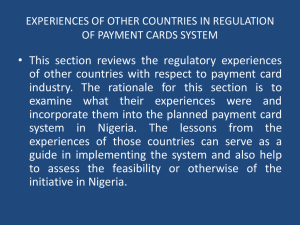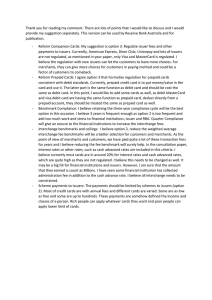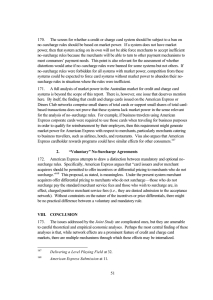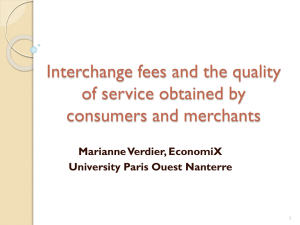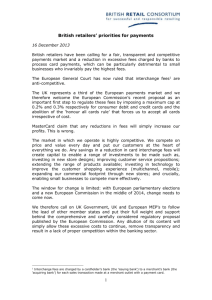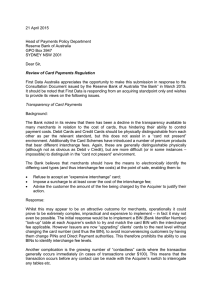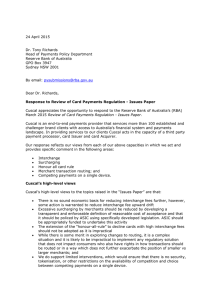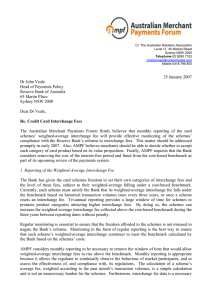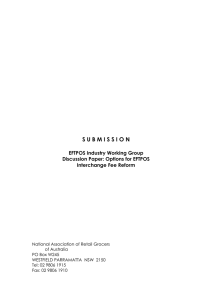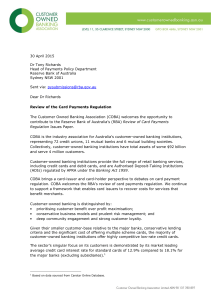The Australian Credit Card System April 2001
advertisement
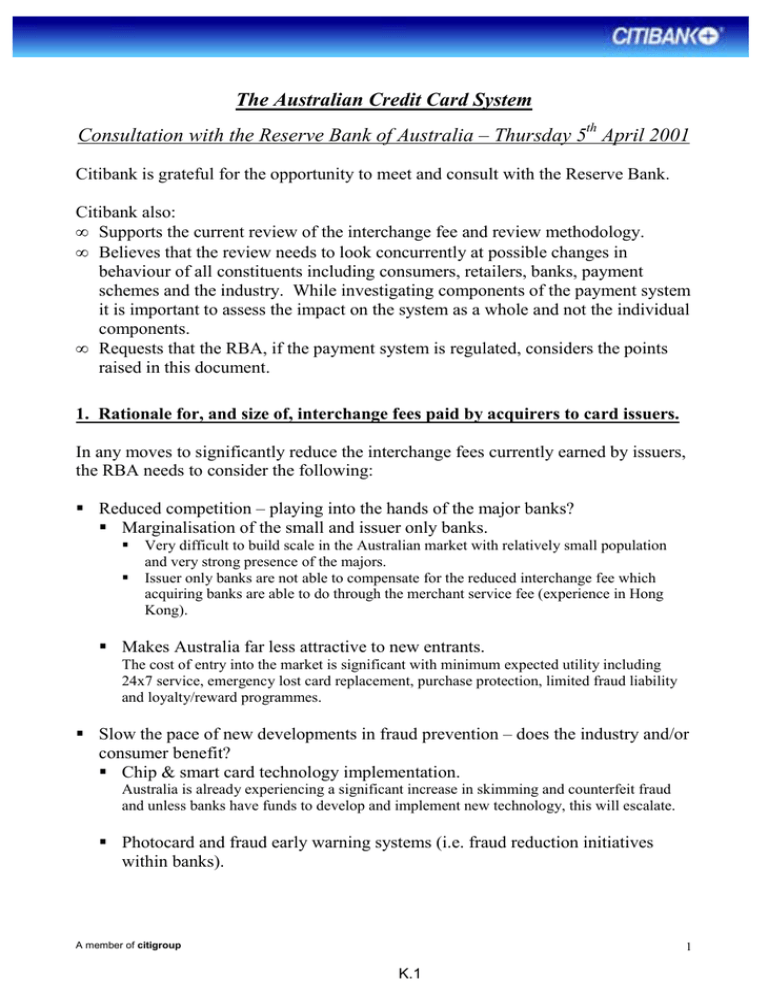
The Australian Credit Card System Consultation with the Reserve Bank of Australia – Thursday 5th April 2001 Citibank is grateful for the opportunity to meet and consult with the Reserve Bank. Citibank also: • Supports the current review of the interchange fee and review methodology. • Believes that the review needs to look concurrently at possible changes in behaviour of all constituents including consumers, retailers, banks, payment schemes and the industry. While investigating components of the payment system it is important to assess the impact on the system as a whole and not the individual components. • Requests that the RBA, if the payment system is regulated, considers the points raised in this document. 1. Rationale for, and size of, interchange fees paid by acquirers to card issuers. In any moves to significantly reduce the interchange fees currently earned by issuers, the RBA needs to consider the following: § Reduced competition – playing into the hands of the major banks? § Marginalisation of the small and issuer only banks. § § Very difficult to build scale in the Australian market with relatively small population and very strong presence of the majors. Issuer only banks are not able to compensate for the reduced interchange fee which acquiring banks are able to do through the merchant service fee (experience in Hong Kong). § Makes Australia far less attractive to new entrants. The cost of entry into the market is significant with minimum expected utility including 24x7 service, emergency lost card replacement, purchase protection, limited fraud liability and loyalty/reward programmes. § Slow the pace of new developments in fraud prevention – does the industry and/or consumer benefit? § Chip & smart card technology implementation. Australia is already experiencing a significant increase in skimming and counterfeit fraud and unless banks have funds to develop and implement new technology, this will escalate. § Photocard and fraud early warning systems (i.e. fraud reduction initiatives within banks). A member of citigroup 1 K.1 § Reduced utility and product differentiation of credit cards – will the customer really benefit? § § § Interest free days. Customer protection and insurance. Loyalty programmes. § Customer service. § Retailers/merchants benefit at the expense of customers – almost inevitable? While lost value in the credit card is almost guaranteed, the reduction in the cost of goods and service supplied by retailers/merchants is far from certain. The review process needs to determine whether customers value the unlikely, and at best marginal, decrease in the cost of goods and services above the real value they currently experience through using their credit cards. 2. Restrictions on access to the individual card schemes. The key objective is to ensure that the payment system maintains a high level of consumer confidence currently ensured through financial integrity and secure payment networks including: § Prudential standing of issuers. § Scheme guaranteed payment to merchants. § Unquestioned acceptance of Visa/MC branded cards globally (irrespective of issuing bank). Any recommendation to change the existing access requirements would need to prioritise these significant benefits. 3. The effect of the ‘no surcharge’ rule imposed by the international card schemes. While the objective of permitting merchants to impose a surcharge on credit card transactions to recover lost revenue is understood, there are ramifications that need to be considered: § Merchants are not necessarily motivated to pass on the cost through a surcharge – small retailers/merchants lose to large retailers/merchants? A member of citigroup 2 K.1 Retailers may be prepared to absorb the cost of interchange and benefit from guaranteed payment rather than accept other forms of payment that don’t provide guarantee. § The large retailers may be prepared to absorb the cost of interchange to: § Create competitive advantage. § Avoid customer confusion. § Save costly infrastructure changes (sales process and practices to accommodate surcharging). (Cited as likely reasons surcharging in the U.K. is rare – refer The Cruickshank report). § Reduces incentive for new payment scheme operators to enter our market or the development of competitor payment schemes locally – play into the hand of the payment systems under review? Unless new/small payment schemes are able to offer issuers incentive to join through interchange fee, they will be unsuccessful in attracting business. § A change in the perception of using credit cards and shift in the risk profile of credit card portfolios – a potential outcome? Fully loading the cost of the transactor base (customers paying off in full each month) through a surcharge will encourage transactors to switch to other payment processes leaving those customers that revolve (or require the credit facility to pay for the goods or services) as the only users of the credit card system. As a consequence: § Customers using credit cards may feel ‘guilty’ using credit (loss of face at the retailer/merchant) instead of other forms of payment (negative view of selecting credit at point of sale as currently experienced in Japan). § Credit card portfolio risk profiles may deteriorate. A member of citigroup 3 K.1

